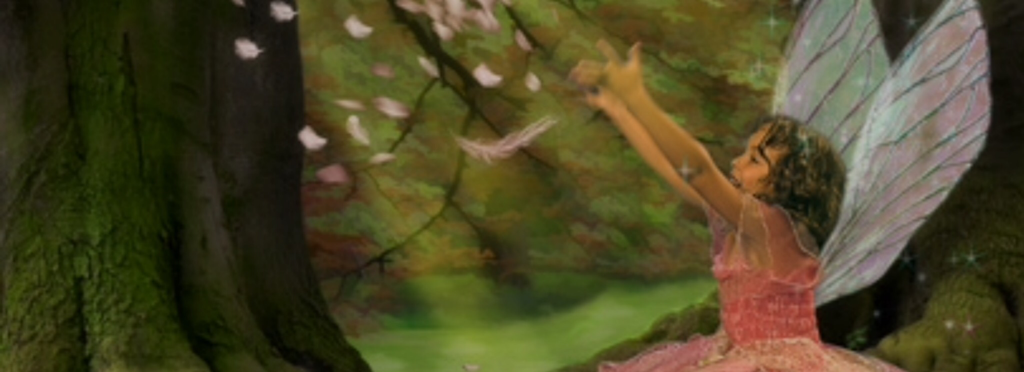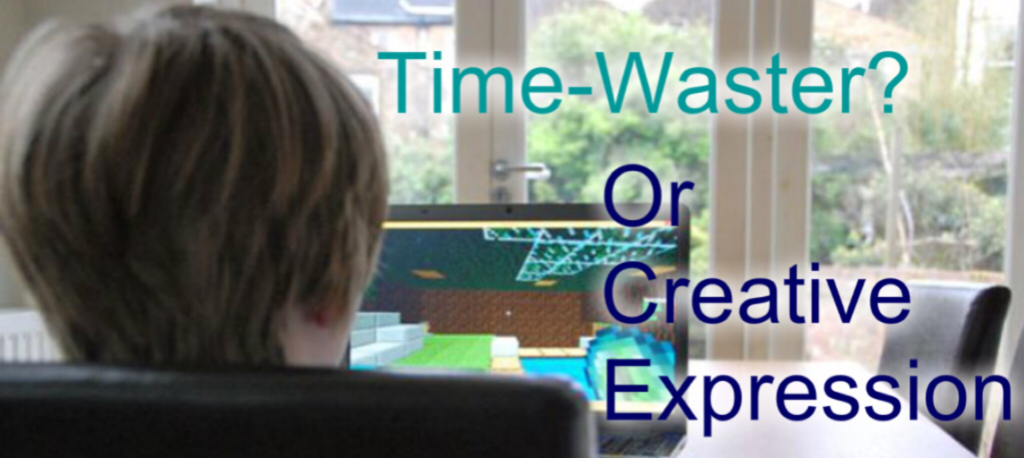The Highly Creative Child
"The truly creative mind in any field is no more than this: A human creature born abnormally, inhumanly sensitive. To him... a touch is a blow, a sound is a noise, a misfortune is a tragedy, a joy is an ecstasy, a friend is a lover, a lover is a god, and failure is death. Add to this cruelly delicate organism the overpowering necessity to create, create, create—so that without the creating of music or poetry or books or buildings or something of meaning, his very breath is cut off from him. He must create, must pour out creation. By some strange, unknown, inward urgency
he is not really alive unless he is creating."
he is not really alive unless he is creating."
- Pearl S. Buck -
It is widely known that intellectually-gifted children possess inherently unique-needs. These unique needs come from physiological differences, which need to be understood and supported in order for the child to develop optimally, both intellectually and emotionally. Similarly, highly creative or creatively-gifted children have their own unique inherent differences and needs, which often dictate special accommodations in parenting, counseling and education. It has been said, “The highly creative child that is not given the time and space to just be....daydream, imagine, and not only create, but be inspired...will feel unsettled, unfulfilled, and incomplete.” Highly creative children are truly different, and subsequently have different needs. They have an intense need to feel they are accepted for who they are, and that they, as well as what is ethically, morally and creatively important to them, are valued and understood. Many highly creative children are intensely interested in art forms that are considered time-wasters by some adults; art, drawing, music, fashion, videos, fandoms, video games, and the like - because they are able to see the artistic or creative side of these interests and activities; the depth, endless possibilities for exploration, invention and change, and the provision of autonomy and mental solitude captivates as well as soothes the highly creative mind. Intense or unusual interests in gifted and highly creative children are common, and may vary or come and go as to importance or priority in the child's life. It is important to understand this aspect of highly creative children and where possible allow adequate time for what is presently important to the child.
Gifted and highly creative kids are different than regular kids, they experience life with high sensitivity and intensity and have special social, emotional and educational needs. However this fact is still minimally discussed, even among education, counseling and medical professionals. Education and adequate and relative resources in support of parenting our gifted and highly creative children are still few and far between. Putting all the pieces of the puzzle together to be able to advocate for our child's needs at school, develop a homeschooling curriculum, or develop a goal focused but creatively supportive daily routine, may seem to be an overwhelming task. These children often do not fit into the regular school classroom. For most of us trying to parent and educate one of these children, it has been a trial and error process - finding what works by finding what doesn't work first. It has taken many parents years to find that "magical combination" or balance between school and allowing our children enough space and time to confidently embrace who they truly are, identify and develop their own unique creative gifts, and allow the natural creative process to happen. Many of us come from backgrounds that did not support individuality, creativity, or even the idea of respect and acceptance of who a child truly is. Learning to support our very unique children and their unique perceptions and creative expression, is an ongoing journey in education and acceptance.
At the base of every highly creative child is a divergent thinker. To be a divergent thinker you have to be different, different – but not less. Divergent thinkers are the inventors of this world, they think of the new, they are constantly looking for ways to create, invent, enhance, beautify, humor or improve - the insufficient, incomplete, normal or mundane. However, others may see our children's creative or "out of the box" thinking as rebellion. All highly creative people are divergent-thinkers, but divergent-thinking or questioning ideas is not in itself rebellion, but is at the base of all new discoveries. It is an evolution for many of us, in getting to the point where we can give our children the support they need to value their true self and their uniquely creative gifts. However, even small strides in our knowledge of, and effort towards, adequately supporting our children, can make a huge difference in how they perceive themselves and in their gaining the confidence needed to pursue their creative dreams.
At the base of every highly creative child is a divergent thinker. To be a divergent thinker you have to be different, different – but not less. Divergent thinkers are the inventors of this world, they think of the new, they are constantly looking for ways to create, invent, enhance, beautify, humor or improve - the insufficient, incomplete, normal or mundane. However, others may see our children's creative or "out of the box" thinking as rebellion. All highly creative people are divergent-thinkers, but divergent-thinking or questioning ideas is not in itself rebellion, but is at the base of all new discoveries. It is an evolution for many of us, in getting to the point where we can give our children the support they need to value their true self and their uniquely creative gifts. However, even small strides in our knowledge of, and effort towards, adequately supporting our children, can make a huge difference in how they perceive themselves and in their gaining the confidence needed to pursue their creative dreams.
"One of the most powerful wellsprings of creative energy,
outstanding accomplishment and self-fulfillment, seems to be
falling in love with something - your dream, your image of the future"
~ E. Paul Torrance ~
outstanding accomplishment and self-fulfillment, seems to be
falling in love with something - your dream, your image of the future"
~ E. Paul Torrance ~
YOU MAY HAVE A CREATIVELY GIFTED CHILD IF YOU SEE THESE THINGS
Unusual alertness even in infancy
Rapid learner; puts thoughts together quickly
Excellent memory
Unusually large vocabulary and complex sentence structure for age.
Advanced comprehension of word nuances, metaphors and abstract ideas
High emotional sensitivity and intensity
Interest in details and depth
High creative energy
Early awareness and concern over world and sociological issues
Concern over rules, morality and fairness
Desire for order and to organize others
Problems with authority and rules, angry, argumentative
Boredom, underachievement, or lack of motivation
Behavioral issues or intensities
Struggles with perfectionism
A sense of being different and isolation
Social and peer-related difficulties - feeling they don't fit in
Self doubt, frustration, criticism
Depression, anxiety, or existential depression
YOU MAY HAVE A CREATIVELY GIFTED CHILD IF YOU SEE THESE THINGS
Unusual alertness even in infancy
Rapid learner; puts thoughts together quickly
Excellent memory
Unusually large vocabulary and complex sentence structure for age.
Advanced comprehension of word nuances, metaphors and abstract ideas
High emotional sensitivity and intensity
Interest in details and depth
High creative energy
Early awareness and concern over world and sociological issues
Concern over rules, morality and fairness
Desire for order and to organize others
Problems with authority and rules, angry, argumentative
Boredom, underachievement, or lack of motivation
Behavioral issues or intensities
Struggles with perfectionism
A sense of being different and isolation
Social and peer-related difficulties - feeling they don't fit in
Self doubt, frustration, criticism
Depression, anxiety, or existential depression
(In part) www.nagc.org/resources-publications/resources/my-child-gifted/common-characteristics-gifted-individuals
Identifying The Creatively Gifted Child
Creatively gifted children are some of the most misidentified, misunderstood and misdiagnosed populations of children in the world. They are often left unsupported, ridiculed or bullied by both the adults and peers in their lives. Below is a chart containing traits of the creatively gifted child in comparison with the traits of bright and intellectually gifted children, to hopefully promote greater awareness, identification, appreciation and support for creatively gifted children everywhere.
Bright
Performs at the top of the group.
Responds with interest and opinions. Learns with ease. Needs 6 to 8 repetitions to master. Comprehends at a high level. Enjoys the company of age peers. Understands complex, abstract humor. Grasps the meaning. Completes assignments on time. Is receptive. Is accurate and complete. Enjoys school often. Absorbs information. Is a technician with expertise in a field. Memorizes well. Is highly alert and observant. Is pleased with own learning. Gets A's. Is able. |
Intellectually Gifted
Is beyond the group.
Exhibits feelings and opinions from multiple perspectives. Already knows. Needs 1 to 3 repetitions to master. Comprehends in-depth, complex ideas. Prefers the company of intellectual peers. Creates complex, abstract humor. Infers and connects concepts. Initiates projects and extensions of assignments. Is intense. Is original and continually developing. Enjoys self-directed learning. Manipulates information. Is an expert who abstracts beyond the field. Guesses and infers well. Anticipates and relates observations. Is self-critical. May not be motivated by grades. Is intellectual. |
Creatively Gifted
Is in own group.
Shares bizarre, sometimes conflicting opinions. Questions: What if... Questions the need for mastery. Overflows with ideas--many of which will never be developed. Prefers the company of creative peers but often works alone. Relishes wild, off-the-wall humor. Makes mental leaps: Aha! Initiates more projects that will ever be completed. Is independent and unconventional. Is original and continually developing. Enjoys creating. Improvises. Is an inventor and idea generator. Creates and brainstorms well. Is intuitive. Is never finished with possibilities. May not be motivated by grades. Is idiosyncratic. |
Kingore, B. (2004). High Achiever, Gifted Learner, Creative Learner. Understanding Our Gifted. Szabos, J. (1989).
Bright child, gifted learner. Challenge, 34. Good Apple.
Understanding the unique characteristics and needs of our gifted and highly creative children will help us know best how to support them. In turn, we can help them to better understand themselves, helping them to gain a positive awareness of their own unique and creative expression will grow self-esteem and the confidence needed to go out in to the world to pursue their own passions and dreams!
Hugs & Happy Parenting!
Julie L Gibson-Vasquez
The Proactive Parenting Coach



